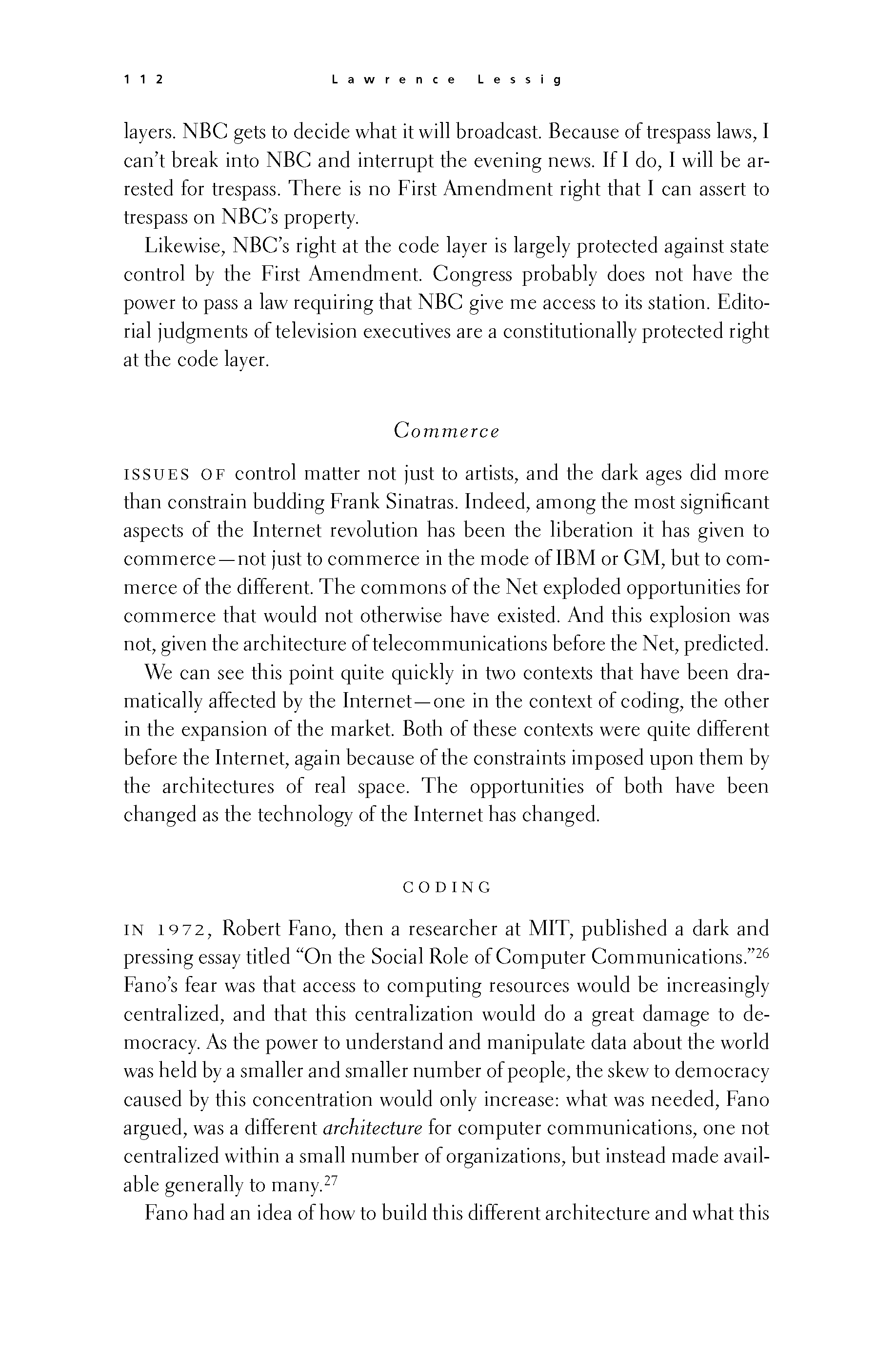 p111 _
-chap- _
toc-1 _
p112w _
toc-2 _
+chap+ _
p113
p111 _
-chap- _
toc-1 _
p112w _
toc-2 _
+chap+ _
p113
layers. NBC gets to decide what it will broadcast. Because of trespass laws, I
can't break into NBC and interrupt the evening news. If I do, I will be ar-
rested for trespass. There is no First Amendment right that I can assert to
trespass on NBC's property.
Likewise, NBC's right at the code layer is largely protected against state
control by the First Amendment. Congress probably does not have the
power to pass a law requiring that NBC give me access to its station. Edito-
rial judgments of television executives are a constitutionally protected right
at the code layer.
/tab\/tab\_Commerce_/tab\/tab\
Issues of control matter not just to artists, and the dark ages did more
than constrain budding Frank Sinatras. Indeed, among the most significant
aspects of the Internet revolution has been the liberation it has given to
commerce -- not just to commerce in the mode of IBM or GM, but to com-
merce of the different. The commons of the Net exploded opportunities for
commerce that would not otherwise have existed. And this explosion was
not, given the architecture of telecommunications before the Net, predicted.
We can see this point quite quickly in two contexts that have been dra-
matically affected by the Internet -- one in the context of coding, the other
in the expansion of the market. Both of these contexts were quite different
before the Internet, again because of the constraints imposed upon them by
the architectures of real space. The opportunities of both have been
changed as the technology of the Internet has changed.
/tab\/tab\CODING/tab\/tab\
In 1972, Robert Fano, then a researcher at MIT, published a dark and
pressing essay titled "On the Social Role of Computer Communications."[7-26]
Fano's fear was that access to computing resources would be increasingly
centralized, and that this centralization would do a great damage to de-
mocracy. As the power to understand and manipulate data about the world
was held by a smaller and smaller number of people, the skew to democracy
caused by this concentration would only increase: what was needed, Fano
argued, was a different _architecture_ for computer communications, one not
centralized within a small number of organizations, but instead made avail-
able generally to many.[7-27]
Fano had an idea of how to build this different architecture and what this
[[112]]
p111 _
-chap- _
toc-1 _
p112w _
toc-2 _
+chap+ _
p113